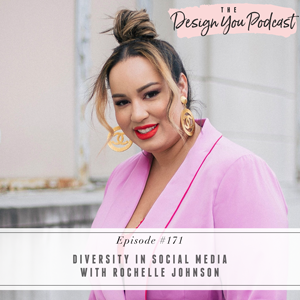
I have an amazing guest on the show this week, friends! We’ve never met in person yet she lives just 15 minutes away from me and I feel like I know everything about her. She is an incredible online fashion influencer and she’s joining me today to talk all things diversity in social media. Get ready for some fascinating insight into the life of an influencer!
Rochelle Johnson is a fashion influencer who started her fashion blog 7 years ago with the desire to show other plus-size women where to get beautiful clothes and how to wear them. She has since had two clothing lines and earned over 400K followers across her social media platforms. She inspires women of all backgrounds, shapes, and sizes to look and live confidently by sharing content that is bold, fun, and accessible.
Tune in this week as Rochelle shares how she built her business and her perspective and philosophies as a plus-size woman in the fashion industry. She shares what she loves most about being an influencer, the importance of being comfortable in your own skin, and why what you weigh has nothing to do with your worth as a person.
If you want help creating a business with thriving revenue streams so that you can design the life you really want this year, now is your chance! We’re going to be opening the doors to the Design You Coaching Program really soon, get on our waitlist now!





